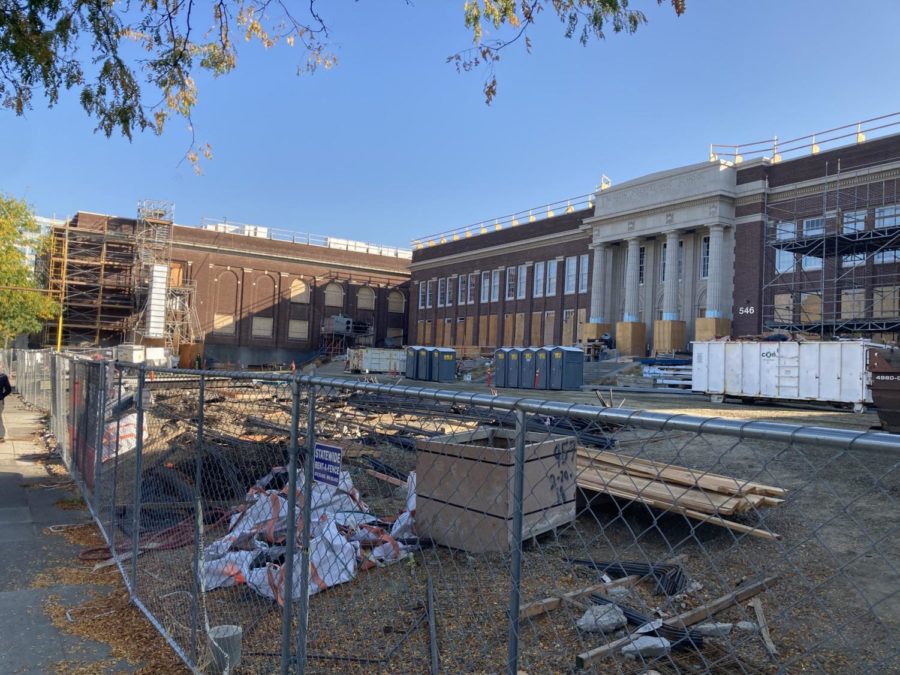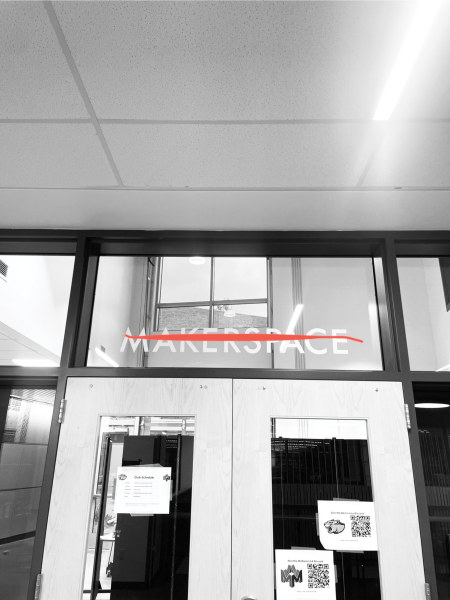Heating system goes against climate policy
In March of 2022, PPS approved an ambitious climate policy, which lists many climate conscious commitments, including an agreement to not build any new infrastructure that uses fossil fuels. However, they are already about to violate this agreement.
Benson High School’s main building is being reconstructed with methane heating. Methane is a fossil fuel. Despite this breach of their policy, PPS insists that Benson will still be energy efficient.
According to a FAQ published by PPS in Oct. of 2021, “the entire campus is designed with sustainability in mind.” It will get 400 kilowatts of energy from a solar array and 40 trees will be planted on campus, along with other features. Construction began last year and is currently projected to be completed by the fall of 2024.
Mike Rosen, a member of the Climate Justice Committee and a former PPS school board member, wrote an opinion piece in the Oregonian in response to the issue. The article questions whether the district will uphold their policy.
“PPS is facing its first test,” Rosen wrote, referring to the district having to make a big decision about how they enforce the policy
In the article, he acknowledges three explanations the district has presented in defense of their potential decision to move forward with Benson’s plans as they are: redesigning the school will cost a lot of money, the school’s reopening would have to be delayed, and PPS will still accomplish its goal of reaching net zero carbon emissions by 2040.
On Sept. 22, two weeks after Rosen’s article was published, the board of Education held a Facilities and Operations Committee meeting for the public on Zoom, which discussed the issues regarding Benson’s modernization.
Kat Davis, the climate justice advisor for PPS, stated during that meeting that:
“Our goal today is really to provide transparency and clarity around the design decisions that were made for these large scale projects, with this collective understanding that when a large scale project that relies on policies and standards to design the projects happens in the midst of those standards being changed, there’s an opportunity for misunderstanding around expectations and clarity.”
Because of the timing of when the policy was voted in and when construction began, it was difficult to properly implement the policy in Benson’s design. As of now, the district is creating individual implementation plans, which will allow long-term goals to be carried out more efficiently. The progress of these goals will be monitored by the Board. Any future projects, such as the modernization of Jefferson, Cleveland and Wells, are set to align with the policy.
Changing Benson’s plans to adhere to the policy is challenging. Pivoting to a new heating system would be costly, and Benson has been facing financial issues from the beginning. Its budget was significantly increased to be able to fund the current plans.
Redesigning the school to be all electric at this point in the project would require an additional $8 million and push reopening to 2026, according to a senior project manager for Benson who spoke during the PPS meeting.
To this, Gary Hollands, the vice-chair of the school board, responded, saying, “$8 million, that doesn’t really seem like a big stretch to do in order to get to where we want to get to. But I’m sure there’s a lot more stuff that goes into that.”
At present, Benson’s total budget for renovation is $300 million.
Later in the meeting, Amy Kohnstamm, the Zone 3 representative on the Board, asked how much of an impact the methane-powered HVAC system would actually have, considering the fact that Benson will be built with many other sustainability features.
Aaron Presberg, the Senior Manager for Energy and Sustainability, explained, “If you have gas infrastructure in the building, that’s always going to be what it is.”
Presberg clarified that the gas infrastructure will always produce a similar amount of carbon and that the HVAC system would be the biggest energy user among all the building systems.
At this time, the board has not reached a conclusive decision as to what will happen with Benson’s modernization.
Hollands stated, “If we’re not going to go down that path, I don’t want to waste everybody’s time going down a path that we’re really not going to go down.”
Kohnstamm was not interested in pursuing a redesign unless it is decided that not doing so would jeopardize the policy.
Julia Brim-Edwards, the Zone 6 representative on the Board, recommended that the board should aim to “better understand where we are with this project, because to me it is contrary to our policy.”
Thisbe Delamarter (she/her) is a senior who loves reading, learning and soccer. She loves journalism because she enjoys investigating and sharing new perspectives.













Elijah Eisenberg • Oct 31, 2022 at 4:41 pm
This makes me kind of frustrated. I really hope they can make a compromise in a way that they don’t have to raise the budget too much, but they can still make something a little more enivornementally friendly